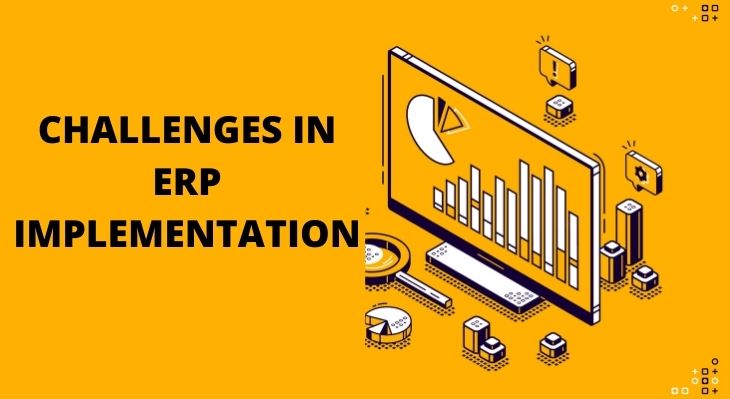The primary use of ERP is to centralize the whole data and provide easy access to other departments of the same company to work on such data.
Moreover, ERP provides complete visibility into the business process thereby promoting efficient resource tracking, improved decision making, and cost savings.
How to Implement ERP
Before going for the implementation of ERP, users should follow the below steps for its successful implementation.
- Identify Objectives
2. Find Project Manager
3. Select Right ERP
4. Migrating Data
5. Setting Up the System
6. Test
7. Training Employees
8. Go Live
Also Read: Benefits of Machine Learning in ERP
The organization must do proper background checks of the vendor before selecting it for ERP implementation.
Previous work history, reviews, complaints after service should properly by checked before selecting it.
Vendors are the nearest point of contact whenever there is any halt with ERP implementation.
If a vendor is not good with its services it can create issues while ERP implementation.
The majority of times the delay in the implementation of ERP systems is because of the slow processing from higher authorities.
Complete involvement of top management is necessary in ERP implementation.
The more quickly we can implement the ERP software, the better results can be expected quickly.
One of the challenges in ERP implementation is to decide which process needs to be integrated.
This type of challenge commonly occurs in an organization with multiple divisions.
Selecting the right ERP integration process can ease up the daily operation, whereas an unwanted integration will only delay the process and might affect the results.
Before and after implementing a new ERP system, the staff needs to be properly educated about its functioning.
There might be resentment from the employees in accepting the new ERP systems.
However, this can be taken care of by adequate training as well as motivation.
Since ERP is going to replace the legacy systems; thus, it creates challenges of data migration.
Data collected by the legacy systems might not be compatible with the ERP systems.
This can be overcome by proper planning before any new implementation is done.
This will provide a clear picture related to various modifications that a new system might ask for.
Many times it happens that an ERP system is not flexible.
This means it can’t be configured according to the current process of business.
At this time, an organization has to step backward and adapt according to the ERP requirements.
However, choosing the right ERP for your organization will eliminate such flexibility issues.
Even after the ERP benefits have been explained to the employees, some might still resist change.
This often creates issues for the organization and leads to multiple errors.
Proper training to the staff related to ERP functioning and how it can ease daily tasks can reduce this issue.
ERP systems might bring your organization’s management issues to a minimum, but they often need maintenance.
Many times ERP systems need to be upgraded according to the changing business needs.
It is at this point vendor’s role comes into play.
If a user has done a thorough investigation of its vendors, it might be possible that the consultancy can be efficiently executed.
However, if the vendor is not professional, then a third party consultancy might be needed, which increases the costs for the company.
Even after the proper training to the employees, some might still choose to leave the organization because of adapting to a new culture.
This might slow down the implementation process in the company.
ERP systems can’t work on the hardware that was brought in for legacy systems.
ERP systems might ask for advanced, and more technically sufficient hardware to run efficiently.
Slower systems might increase the cost and time issues for the organization and may also result in unproductiveness.
So, it is advised to properly invest in the hardware compatible with the ERP systems a user wishes to implement.
Conclusion
ERP systems automate the majority of business tasks, thereby increasing the business’s efficiency and goodwill.
However, results can be adverse for the organizations that don’t do proper research before opting for ERP systems.
Users should adequately understand their business needs before affirming the ERP implementation.
Also Read:

